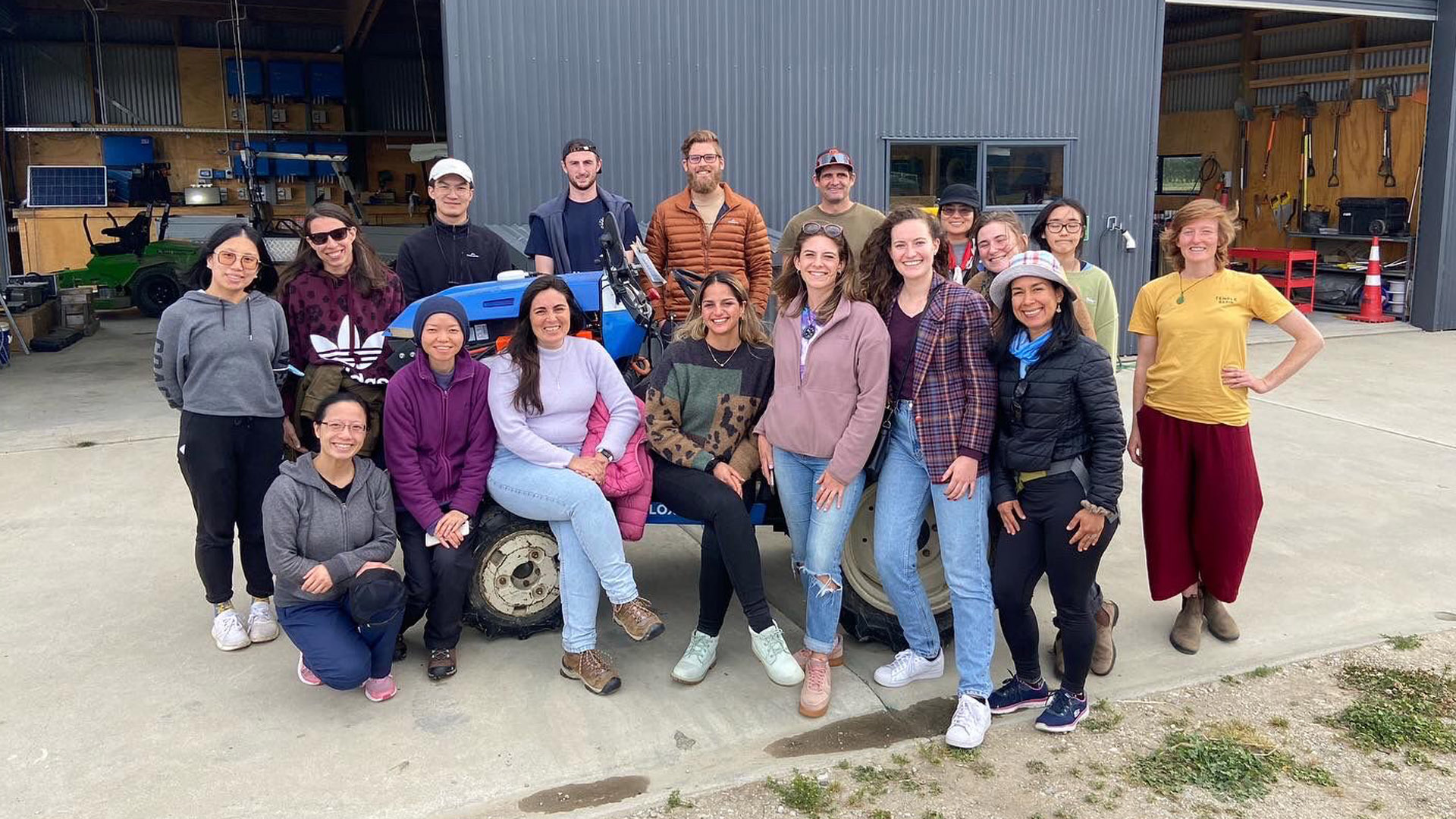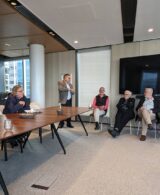Future global climate change leaders learn from Wānaka and Twizel communities on field trip

5 December 2022
Future leaders in climate change from New Zealand, Chile and China are in Wānaka and the Mackenzie Basin this week to learn about grassroots environmental initiatives.
Sixteen postgraduate students and young professionals from our Winds of Change programme will work together during an interactive field trip to investigate common climate change issues and how sustainable development strategies can be created for the future.
They’ll be talking to local agencies and community groups, including WAI Wānaka and the Mackenzie Agency Alignment Programme, to witness the collaborative efforts of local initiatives that tackle complex issues of climate and sustainability. Participants will see for themselves how such initiatives work – from high-level policy to the literal ground level – through examining the science and practice of removing pests and planting regenerative flora and the balance and impact of development and conservation.
The group – six from China studying in New Zealand, three from Chile studying in New Zealand and seven New Zealanders – are part of a cohort of 40 postgraduates and young professionals taking part in the Winds of Change programme. Launched in 2020 with the Latin America CAPE to create a bilateral network between New Zealanders and Chileans, the programme expanded this year to include the North Asia CAPE and Chinese students too. Winds of Change is led by the University of Otago and run in close collaboration with academics and mentors in NZ, Chile and China.
The students’ individual studies cover many disciplines relating to climate change, including development studies, environmental management, law, engineering, business, forestry, geology, soil microbial ecology, marine conservation, biotechnology, conservation, politics, climate change science, marine biology and geophysics. The Winds of Change programme is run almost fully online. This year’s field trip follows the success of the inaugural Latin America pilot field trip, held in the South Island in 2020.
Matthew O’Meagher, Director, Latin America Centre of Asia-Pacific Excellence says “We are delighted to see the connections with our ecological cousin Chile deepen and expand in possibilities as the Winds of Change programme has developed over the past three years. These emerging leaders from across the ocean and across disciplines have united to produce insightful work and great resources, even throughout the pandemic. Now those in New Zealand can meet in the southern high country which bears striking resemblances to Chile and similar ecological challenges, and which also its own Latin American population. The future of this network is exciting, and we are very happy to include in this network the agencies in Central Otago that are exemplars of working together for a sustainable future.”
The programme itself also shines as an example for internationally cooperative efforts, he adds.
“In June 2022, when Hon Chris Hipkins, New Zealand’s Minister of Education, met Chile’s Council of University Rectors in Santiago, the programme was showcased as an exemplar of trans-Pacific collaboration on sustainability. The programme has also inspired a spinoff programme that connects school students around climate issues, ‘The Ocean That Connects Us’, led by Rosmini College.”
Charlie Gao, Director, North Asia Centre of Asia-Pacific Excellence says “While people know China is our biggest trading partner with connections in areas such as agriculture and tourism, we see huge potential for closer collaboration in tackling our common climate challenges. Forging bonds among passionate students in adaptation and sustainability helps lay the foundations for future cooperation that will lead to mutually beneficial solutions. The group’s exploration of stunning locations within Central Otago will no doubt inspire their efforts.”
The Wānaka and Mackenzie Basin field trip, 5-7 December:
Monday 5 December:
• Visit to Forest Lodge Carbon Free Orchard, Mt Pisa to see zero carbon farming achieved in action.
Tuesday 6 December:
• Visit Alpha Burn Station with WAI Wānaka and the Wānaka Catchment Group to look at water quality work, links to climate change. Talk to WAI about their work programmes and how it links with other collaborative workstreams across the basin.
• Visit Te Kākano Aotearoa Trust, a Wānaka community-based native plant nursery, to see how this valuable work operates in the field.
Wednesday 7 December:
• Meet Department of Conservation and Environment Canterbury and the Mackenzie Basin Wildings Trust in Twizel to discuss the Mackenzie Basin Agency Alignment Programme, and observe the impact of this work on the famous Mackenzie Basin landscape.
• Meet Mt Cook Salmon.
• Field trip ends.







